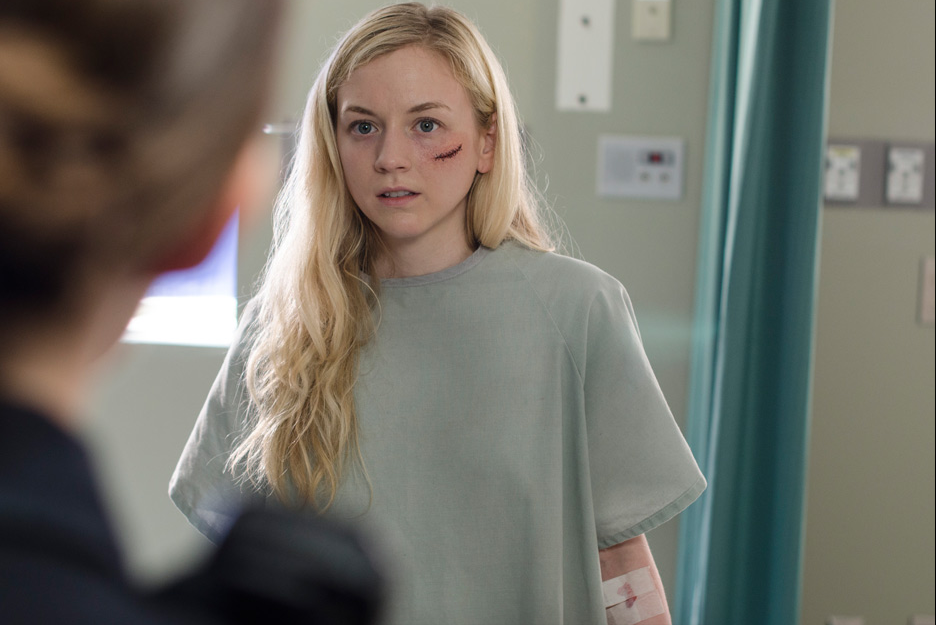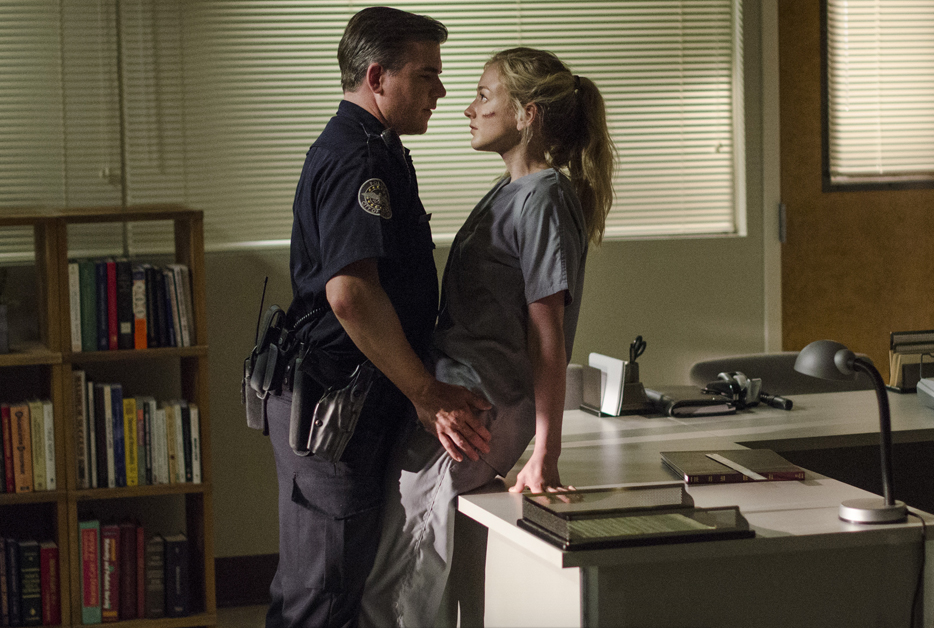Brains and Bodies: Sexual Assault in The Walking Dead
[SPOILER: Season 5 Episode 4]
For a season that starts off with the main characters being held captive by cannibals, you might think there are few boundaries left to push. In one of their latest episodes, “Slabtown,” The Walking Dead has shown us that five seasons into a show brimming over with death and gore, sexual assault and the loss of bodily autonomy is often a bigger threat than the undead.
Rape isn’t an uncommon topic in television and is far more likely to be shown than the cannibalism in the previous episode. I shouldn’t feel so shocked by this episode, right? So why was I? The conclusion I’ve come to is that rape is not an issue talked about in television. It gets glossed over constantly. I’m sure we can all look back on any given episode of a prime time crime show and find a brand-new character (who will inevitably be gone by the end of the episode) who has been raped. It has become a farce of the system and the traumatic event is completely removed from the reality of rape. In real life, someone who has been sexually assaulted doesn’t just magically disappear at the end of an episode.
It seems that after Beth Greene was kidnapped last season she was beaten, left unconscious, and later found by officers from the Atlanta Police Department who rescued her and nursed her back to health. Upon waking she’s told by the officer in charge, Dawn Lerner, “if we hadn’t saved you, you’d be one of them right now. So, you owe us.”
The hospital the officers have taken over essentially runs off indentured servitude: the officers save people and enslave them as a way to pay them back for their services and keep the lifestyle they’ve become accustomed to. Beth meets fellow Grady Memorial patient Noah, who has been held by them for over a year and Joan, who undergoes a forced amputation by the officers after she tries to escape and is bitten by a walker. Throughout her stay she is constantly harassed by Officer Gorman who forces her to eat a lollipop he had been sucking on. Later, he attempts to rape her.
Beth Greene is a character that we’ve grown with over the last four seasons. She isn’t a new character without a background. She’s the eighteen-year-old who tried to commit suicide in Season 2, the teenager who took care of baby Judith when her distraught father, Rick, was unable to, and the girl who kept her group’s hopes up with her singing. She’s as real as you can get as far as fictional television characters. So when Beth is assaulted, as a viewer who’s become so accustomed to seeing violence being enacted upon nameless, forgettable characters, the incident forces the viewer to confront reality.

The lollipop scene was more disturbing than the attempted rape scene, in my opinion. This overt depiction of violence is not unusual in television and therefore lacks impact. The lollipop scene presented sexual assault in an unusual way that forces the viewers out of their comfort zone and forces them to vicariously experience the trauma that Beth endured. They’re forced to realize that sexual harassment is something that happens all the time. In an interview with Entertainment Weekly, Emily Kinney, the actress playing Beth Greene, discussed how unwanted sexual advances are an issue that affect all women.
“Unfortunately, I do feel — maybe not to that extent — but I do feel like most women and most girls know what it feels like to have that kind of male aggressiveness. Unfortunately, I do feel like I understood that feeling — even though maybe nothing that extreme, but I do feel like a lot of women and girls have felt that unwanted attention and power trip kind of thing.”
Funny that it takes a post-apocalyptic zombie show to get that point across.
One would think the walkers would be the scariest thing the characters face, but time and time again, The Walking Dead shows that the real threat is always other people. The walkers are predictable – the people are not. As Emily Kinney put it herself, “Beth is like, I have to get out of here. I’d rather be fighting zombies and barely alive than living in this situation.”
When one experiences death constantly, the scariest thing in this world is not dying but the prospect of no longer holding any control over your actions and your outcome.





